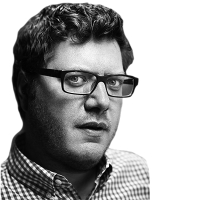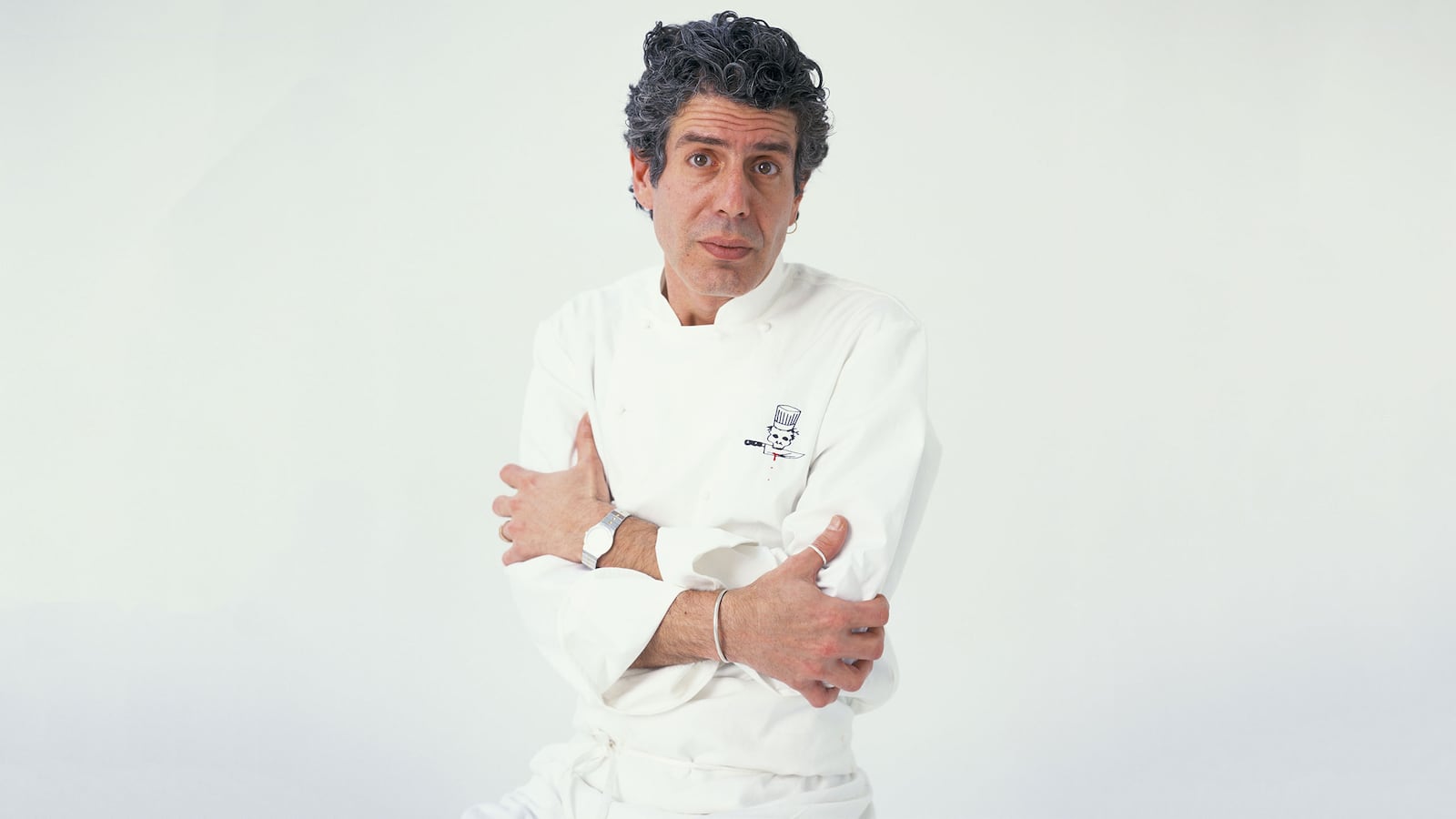When Kitchen Confidential was published in May of 2000, Anthony Bourdain was a burned-out career chef who had spent a pretty unremarkable career bouncing from one New York restaurant to the next. “As a chef, I wasn’t an important chef,” he told me last year, when I suggested he was being humble about his cooking career. “I was not an innovator. I was not a creative chef. I never had a successful restaurant.”
Unbeknownst to most of the diners he cooked for at the time, he wrote mystery novels on the side and was actively pitching his food writing. (His journalism aspirations weren’t so surprising, given his mother was an editor at the New York Times.) At least one major food magazine I know of passed on publishing his early stuff—perhaps as big of a mistake as the Red Sox trading Babe Ruth to the Yankees.
But after the book came out, things changed. At first, its salacious tips, racy stories, uncensored opinions and f-bombs made the biggest impact—including, famously, that you should never eat fish on Monday (it’s from the previous week) and brunch menus are usually a patchwork of gussied-up leftovers. (The book’s subtitle—Adventures in the Culinary Underbelly—didn’t hurt either.) Bourdain suddenly found himself palling around with the most famous chefs in the world, all eager to welcome the supposed bad boy to the club.
For his encore the following year, he wrote and released A Cook’s Tour, in which he ate and drank his way around the world. Naturally, a Food Network TV series based on the idea came next. Instead of bringing chefs to a studio (Julia Child–style) or cooking in front of an audience (like so many of the Food Network’s other early shows had done), A Cook’s Tour used Bourdain’s sudden stardom as an excuse to set out on epic adventures. He visited cooks in their kitchens and homes all over the world, the more exotic the better. And along the way, whether he knew it or not, he changed the course of food TV and food writing forever.
His approach to blending food and travel, as simple as it seems, is now so familiar and pervasive, it’s hard to properly give it the due it deserves. Child made the work of professional chefs accessible to home enthusiasts, but Bourdain made cooking cool, sexy, a little dangerous and, most important, a means to understand the world. His insider perspectives and engaging writing style made him an instant celebrity, but his long-term contributions are much harder to quantify and will be felt for decades.
His books and other shows (No Reservations on the Travel Channel and Parts Unknown on CNN continued his ventures) helped propel celebrity chefs into a new stratosphere of fame and increased the breadth and depth of food coverage. Magazines, newspapers and websites of all kinds suddenly wanted food and drink content similar to his work. Inspired, journalists hit the road aiming for the farthest corners of the food world.
Perpetually armed with a perfect sound bite, which he would drop with gleeful mischievousness, Bourdain knew how to make a headline. But his greatest gift to his audience weren’t his bitingly funny comments or, for that matter, his recipes. It was his boundless curiosity.
That effect can be seen before dawn at the Tokyo fish market, where tourists now flock in search of a Bourdain-like experience of eating unfathomably fresh tuna for breakfast. He pushed Americans to step outside their culinary (and otherwise) bubbles, and they bit.
But it was about more than just food. Meals and food prep often jump-started eye-opening discussions about cultural pride, history and evolution. As the years went on, the food quotient of his shows decreased significantly. It didn’t seem to matter. His influence and star power only grew, fueled by his willingness to talk—and listen. On Parts Unknown, he tackled topics like the opioid epidemic currently tearing apart western Massachusetts. His pointed commentary continued on Twitter, where he was often a voice of reason even when the world seemed craziest.
Bourdain transcended the food-travel-show paradigm, which prevented him from becoming a caricature, and he was too smart (or too relentlessly real) to accept bullshit. I often think about one scene in which he watches an Italian chef “dive” for fish that someone in a nearby boat tosses into the water. It happened to be Bourdain’s birthday; the scene was enough to send him to the bar for the rest of the day.
Cooking shows and food writing generally stayed in their assigned lanes before him, quietly revealing other truths if you read carefully between the recipe lines. But what truly excited him was the dialogue and exploration of other cultures. It was an act of sleight of hand by a master illusionist, who got his hungry viewers and readers to look at themselves and other people in a new light.
In person, Bourdain could be playful and was willing to entertain interesting questions and digressions. A few years ago, we chatted about silly hangover cures and whether the old rule of drinking beer before liquor actually works. Not only did he seem to enjoy the questions, but his extemporaneous answers were like a voiceover from his show. “Use judgment,” he said. “Drink responsibly. If you’ve had a whiskey and then you moved over to wine for dinner, and maybe you have another whiskey or Cognac after, and later at the bar some meathead comes up to you with a tray full of tequila shot and suggests it would be a really good idea to start pounding [them]—this is probably going to lead to some bad decision making on your part. You will regret this almost inevitably.”
He was even thinner than usual as he sat across from me, perhaps the ceaseless travel, long meals and endless commitments taking their toll. But he had an infectious sparkle in his eye and was unusually unhurried and patient for someone whose time was in such demand.
His generosity is spoken of widely and his generous spirit was one of his greatest characteristics. He used his star power to illuminate important projects and issues. He championed chefs, restaurants and cuisines from around the world. His eponymous book imprint for HarperCollins published a number of interesting works that he felt deserved more attention, and his PBS show Mind of a Chef, which he produced and narrated, used a range of storytelling mechanisms to bring each season alive.
Last year, he produced a documentary about chef Jeremiah Tower, which was as much a meditation on the nature of celebrity as it was about cooking. We chatted over the phone about Tower, among other things for my story about the film. In true Bourdain fashion, he jumped right in. “I think that he’s changed the world in ways that we take for granted now,” he said. “Look, it cannot be understated the importance of the simple fact that Jeremiah was the first fuckable American chef.” He continued: “Jeremiah changed the world of restaurants and restaurant cooking, the worldview of the restaurant chef and the expectations of the average diner in a way that few, if any other, American chefs ever did.”
Even though he would no doubt fight me on this, Bourdain did the exact same thing.






